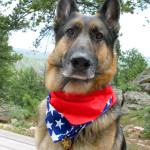The Great Debate: Purebred vs. Mixed Breed Herding Dog

Purebred vs. Mixed Breed: Do You Have a Preference?
There has been a long standing debate about the health of purebred vs. mixed breed herding dogs. Which breed is better? The argument is mostly fueled by two factors: the genetic burden of purebred herding dogs and which breed turns out to be the toughest herding dog. Additionally, some people seem to favor adopting a shelter herding dog, rather than buying a purebred. Of course, price comes into play since mixed breeds are usually cheaper than purebreds. Regardless, the option of favoring a selective breed depends on a person’s needs, hence there are various issues you should consider before making the decision.
Genetic Disorder: A study concluded at University of California Davis evaluated the veterinary records of 90,004 dogs, dating back more than 15 years ago (1995-2010). The researchers discovered 27,254 dogs with diagnosable genetic disorders such as cancer, hip dysplasia, epilepsy, cataracts and heart problems. In retrospect, the mixed breed appears to have a slight advantage since 10 of the 24 identified genetic disorders were more common in purebred dogs. However, the prevalence of the rest of the genetic ailment is equally shared in both breeds, with the exception of cranial cruciate ligament which is more common in mixed breeds. Bear in mind that the research covers all types of dogs in general, including herding breed dogs.
Physical Traits: In contrast with their counterparts, you are likely to predict the weight, coat texture and even whether the ears will bow down or stand up when dealing with a purebred herding dog. If you have reared purebred herding dogs for long, then you know the puppy most likely resembles the parents or grandparents. On the other hand, forecasting how your mixed-bred puppy will grow up in body size once he reaches adulthood is a gamble. In most cases, the dominant gene overshadows the gene pool which reflects indiscriminately. A plus-sized herding dog breed mingled with a small-sized dog does not always equal to a medium-sized offspring. The outcome could go both ways to turn into either a huge or small herding dog.
Character Traits: Just like physical traits, you can easily guess the character behavior of purebred herding dogs. For instance, German Shepherd Dogs are known for their obedience, alertness and curiosity while Border Collies are typically tenacious, responsive and energetic. Such character distinctions can be merged by a German Shepherd Border Collie mix. Not to be confused with German Coolie - a herding dog that traces its roots back to early 19th century. The former is an offspring of a German Shepherd Dog and a Border Collie, while the latter descends from late 18th/early 19th century British herding dogs. Unlike the German Coolie, most people mistake a GSD and BC cross for a young German Shepherd Dog. Moreover, a typical German Shepherd Dog and Border Collie mixed breed weighs between 75-80 pounds when fully grown. The height varies since the males are usually taller than the females, standing 27-28 inches while the females are mostly 21-25 inches. Fortunately, the German Shepherd Border Collie mix has a life expectancy of between 12 to 15 years.
 German Coolie Puppy
German Coolie Puppy
Click Here for the History of the German Shepherd Dog
Ironically, if you want to rear a variety of cross breed herding dogs, the best option is to purchase different types of purebred herding dogs. That way you can trace the ancestry background and counter potential genetic disorder at the early stages before it develops profusely. Regardless, a cross offspring is likely to encounter health problems common in both parents due to genetic hereditary. For instance, common health problems associated with German Shepherd Dogs is hip dysplasia while Border Collies are prone to deafness, which means most of their cross-breeds will likely suffer from both of the aforementioned genetic disorders.
Both purebred and mixed bred herding dogs have high energy levels. That is why they chase, grab and nip at moving objects including birds, cats and squirrels. Whether purebred or mixed bred, a herding dog will always remain a herding dog. In fact, sometimes when they are bored, they can try to herd fellow human family members.
What are your thoughts on pure versus mixed herding breeds? Overall, we love them all just the same!
Sources:
Dogable - German Shepherd Border Collie Mix
Dog Breed Plus - German Shepherd Collie Mix
Article By:
Martin Mooray






